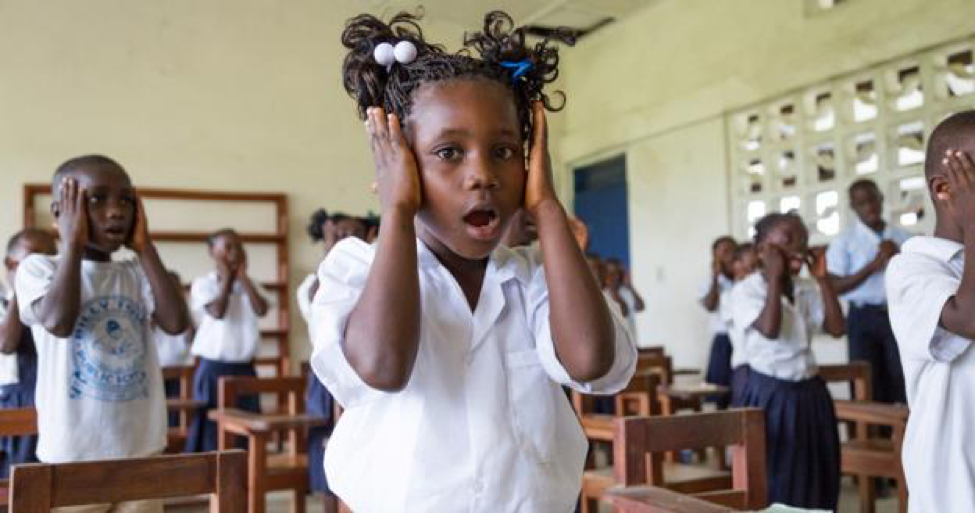Within Liberian circles on social media in recent weeks, a UNICEF report published last year has resurfaced, claiming that Liberia tops the list of countries with the highest proportion of out-of-school children.
That information has been distributed, generally with a message that the ruling government and its Ministry of Education have not done enough to improve the country’s education system.
Information from the report, which said Liberia has “nearly two-thirds of primary-aged children not accessing school,†was carried by several international news outlets, including Reuters.
Many other publications tend to use similar figures that suggest that Liberian children are largely out of school.
But does the report accurately reflect the situation on the ground?
Are there really more children out of school in Liberia, a peaceful country, than in Afghanistan and South Sudan, both countries that are actively involved in civil conflicts?
Since the country ended its civil war in 2003, Liberia has transitioned to a path of peace. After President Ellen Johnson Sirleaf became president in 2005, her administration has been working with development partners to restore the country’s education services. It is strange to think that despite all the progress made, so many children are still out of school.
In an email exchange, UNICEF said it sourced most of the data in the report from the UNESCO Institute for Statistics Global Database of 2016. A UNICEF data analyst in New York, Hiro Hattori, wrote that about 175 countries were included in the report before the top 10 were selected.
UNESCO bases its definition of out-of-school on the “total number of pupils or students in the theoretical age group for a given level of education enrolled in that level, expressed as a percentage of the total population in that age group.â€
What that means is the out-of-school definition is not as straightforward as one would think. In fact, it is misleading and the UNICEF press release provided no clarification on the definition of out-of-school.
Children could be in school but in a different grade than what is suitable for their age and still be classified as out of school.
How Did the Ministry of Education Respond to This?
Education Minister George Werner, in an op-ed published last year, provided a detailed explanation on why the data released in the UNICEF report is misleading.
Werner said there are about 707,000 children of primary school going age (between the ages of 6 and 11) in Liberia. Of this number, only about one-third are enrolled in primary school. He said another 351,000 children, or half of the age group, are enrolled in Early Childhood Education programs (nursery or kindergarten).
According to him, nearly half the children who should be enrolled in primary school are enrolled in Early Childhood Education programs, making it 118,000 children estimated to be out of school. Therefore, approximately 17 percent of children in this age group are out of school.
“So where does the two-thirds figure come from?†he pondered. He said a 2014 survey conducted by the Liberia Institute of Statistics and Geo-Information Services asked a simple question: “Does your child go to primary or secondary school or university and above?” Nearly two-thirds of the relevant subgroup for primary school (6 to 11-year-old children) were not enrolled in primary school.
“This is where the two-thirds out of school children figure come from. However, the very next question asked by the survey was ‘Why does your child not go to school?’ and it turns out that more than 3 out of 4 children who didn’t go to primary school were still in nursery or kindergarten. The rest were out of school,†he said.
“Of course, 17 percent of primary school going age children out of school is still 17 percent too many and the Ministry is fully committed to addressing this issue. We are working with other stakeholders in the education system to provide these children with access to alternative education programs and ensure that they don’t miss out on the opportunity to have an education.â€
Are there any other data sources or reports about out-of-school children in Liberia?
Liberia’s long civil crisis did much to place children in grades for which they are much too old. However, the country has done much to increase percentage number of children in school.
A much more comprehensive report released by the World Bank on out-of-school youth in Africa, in general, found Liberia to have among the highest percentage of youth in school, estimated at 62 percent.
But this figure is greater than that of Rwanda, Zimbabwe, Niger, and Cote D’Ivoire, to name a few. Liberia, a low-income and fragile state, does very well in the overall number of school-aged students enrolled, compared to most of the African countries included in the report.
While the age range examined in this report is much wider and older than the one examined in the UNICEF report, it is consistent with the Education Ministry’s estimation of 83 percent of primary-school-aged students being enrolled in schools. Generally, children are more likely to drop out of school as they progress in school.
Essentially, all reasonable reports show that the out-of-school phenomenon is overexaggerated.
Why is it important to clarify this?
Donors, who are often not on the ground, depend on reports like the one published by UNICEF to determine where to put their money.
In fact, around the time the UNICEF report was published, there was an impending €12 million project being funded by the European Union to address out-of-school children in Liberia. Last month, USAID and the Ministry of Education launched a project aimed at targeting 48,000 out-of-school children.
If the magnitude of such issues is overemphasized, it could siphon money out of other issues that may be more pressing.
In his op-ed, Minister Werner said his bigger fear with the “two-thirds of the children are out of school†statistic is that it diverts donors’ attention from other challenges of the Ministry of Education.
“We shouldn’t be focusing all our attention only on children who aren’t in school, but we should also be concerned with children who are ‘at risk’ of dropping out and the fact that even when children are in school, they aren’t getting as much out of it as they should,†he noted.
Werner said the ministry sees overage enrollment as a particularly critical issue. International evidence and local experiences indicate that students who are overage are more vulnerable, may drop out of school altogether or miss classes due to their responsibilities back home.
These children, he said, are at risk of not acquiring the badly needed literacy and numeracy skills they need to succeed in life.
Of course, the overemphasis of misleading figures like this can impact the perception of the country. Potential investments could be stalled if investors do not think the workforce would be sufficiently educated in a reasonable amount of time.
Additionally, highly skilled workers, especially from the Liberian diaspora, may see the country as an inadequate place to educate their children and put off any move.
Even though the data published is misleading, UNICEF has kept the piece published on their website without any clarification. Reuters, also, which apparently did not vet the information before republishing, has kept up its news report.
Featured photo by GPE/ Kelley Lynch



